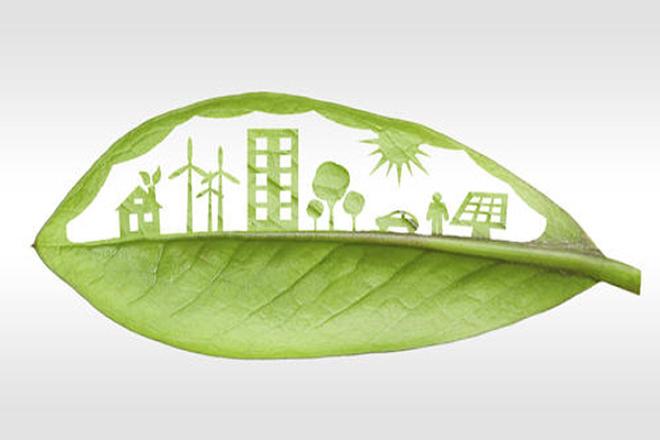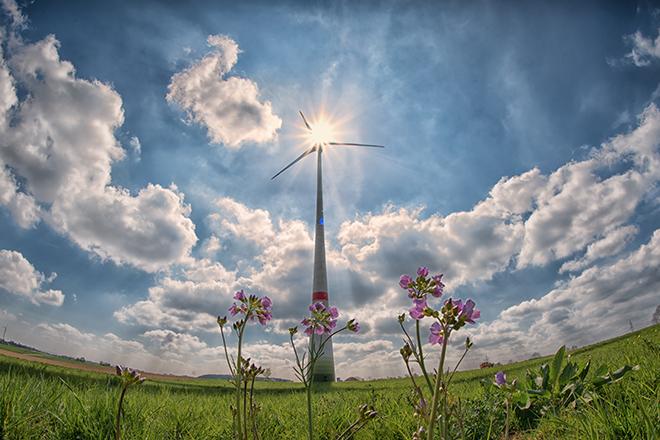Energy Conservation for Environmental Protection

Credit: Lightbulbs by Dreamstine is licensed under CC0
Resource Description
Much of the general population believes that the energy sources we depend on are perpetual. While people believe that energy use is the culprit for environmental damage, they are not aware of the methods and principles by which energy conversion devices operate. This course will provide you with knowledge and information on the main operating principles of devices/appliances in common use and will help you in making energy efficient and economical choices. The objective of the course is to expose you to energy efficiency in day-to-day life in order to save money and energy and thereby protect the environment. I hope the information in this course will help you become an environmentally-responsible individual of this Global Village. Learn moreEnergy in a Changing World

Credit: Green city concept, cut the leaves of plants, isolated over white by kirillov alexey, licensed through Shutterstock used with permission
Resource Description
What is energy? It's the hot in heat, the glow in light, the push in wind, the pound in water, the sound of thunder and the crack of lightning. It is the pull that keeps us (and everything else!) from simply flying apart, and the promise of an oak deep in an acorn. It is all the same, and it is all different. Sunshine and waterfalls won't start your car, and wind won't run the dishwasher. But, if we match the form and timing of the energy with your needs, all of these things could be true. Energy in a Changing World is about the full arc of energy transformation, delivery, use, economics and environmental impact, especially climate change. Learn moreEnergy Policy

Credit: Purple Flowers by winterseitler is licensed under CC0
Resource Description
Energy policy sits at the crossroads of science and policy. And now, energy and climate policy are inextricably linked; the policies we choose have very real consequences for our climate. This intersection of science and policy is chaotic and bustles with activity motivated by various competing (and conflicting) interests and factors. We must understand the motivations driving them and bridge the divides between our reliance on fossil fuels and our need to transition to less carbon-intensive and renewable alternatives. While the science and math behind these problems is often fairly straightforward, the politics and behavioral changes are not. Come stand at this busy intersection with us as we navigate toward progressive climate policy alternatives at all scales of governance! Learn moreGeo-Resource Evaluation and Investment Analysis

Credit: Port Arthur Texas by user:12019 is licensed under CC0
Resource Description
We often face investment decisions, whether in our personal lives or our jobs. Investment projects involve payments at different times in a project's life. Capital costs are usually paid at early stages, but revenue is generated in the future. Time affects the value of money, and these values can't be compared directly. In EME 460, Geo-Resources Evaluation and Investment Analysis, we will learn methods to evaluate investment projects. The objective of the course is to ensure students learn the techniques used in geo-resource project evaluation, cash flow, net present value, and rate of return analysis; benefit cost ratio and payback period; interest rate and break even calculations; tax considerations, mutually exclusive projects evaluation, uncertainty and risks, depreciation, and loan calculations. Learn moreGlobal Energy Enterprise

Credit: Lobbying 161689 by OpenClipart-Vectors is licensed under CC0
Resource Description
Have you seen a Clean Coal baseball cap? In the challenge to meet soaring energy demand with limited resources, volatile issues like those related to the environment, national security and public health are often addressed outside of normal market transactions and are called externalities, or nonmarket factors. Stakeholders can act in resourceful ways to create a nonmarket environment that best serves their interest. A firm may challenge a law that makes it expensive or difficult to do business or compete with others, for example. An individual may organize a boycott of products or services that violate the individual's interests or principles--hey, don't buy from them! Nonmarket strategy in the energy sector is the subject of this engaging course. Learn moreGlobal Finance for the Earth, Energy, and Materials Industries

Credit: Turned-on Monitor Displaying Frequency Graph by Lorenzo is free to use
Resource Description
Global Finance for the Earth, Energy, and Materials Industry covers the physical and financial aspects of energy commodities with the focus on crude and natural gas. The physical "path" of each commodity from the point of production to the point of use will be explained, as well as the "value chain" that exists for each. Commodity market pricing, both cash and financial, will be presented, encompassing industry "postings" for cash, commodity exchanges, and "over-the-counter" markets. The use of financial derivatives to reduce market price risk ("hedging") will be presented, and "real world" examples will be utilized. Students will learn and practice the trading strategies in the energy commodity financial markets. Learn moreHuman Use of the Environment

Credit: Green 2558976 by StockSnap is licensed under CC0
Resource Description
Geography 430 is an active, creative learning community focused around understanding the changing relationships between people and their environments, the causes and consequences of environmental degradation, strategies for building a more sustainable world, and the methods and approaches that scholars have used to understand human-environment interactions. The primary course objectives are to help geographers, earth scientists, and other professionals to deepen their appreciation for the complexity of human-environment systems and to develop skills that allow them to interpret, analyze, and communicate effectively regarding human-environment interactions in their lives as students, professionals, and citizens. Learn moreIntroduction to Energy and Earth Sciences Economics

Credit: Gray Laptop Computer Showing Html Codes in Shallow Focus Photography, by Negative Space from Pexels is licensed under CC0
Resource Description
Introduction to Energy and Earth Sciences is an introduction to microeconomic fundamentals with a focus on the applications of economics to energy and environmental markets. We will introduce the economic method of analysis to the environmental and resource questions facing society. We will learn about the market forces, supply and demand and how they are formed from two concepts of law of Diminishing Returns and Diminishing Marginal Utility. We extend our knowledge by exploring factors such as market dynamics and market equilibrium, government intervention and market power. At the end we will apply these concepts to real life examples and address Climate Change and Carbon Policy, Resource Scarcity and Energy Security, and Changes in the Electricity Business. Learn moreOil: International Evolution

Credit: Oil Pump Machine Under Orange Sunset from Pexels is licensed under CC0
